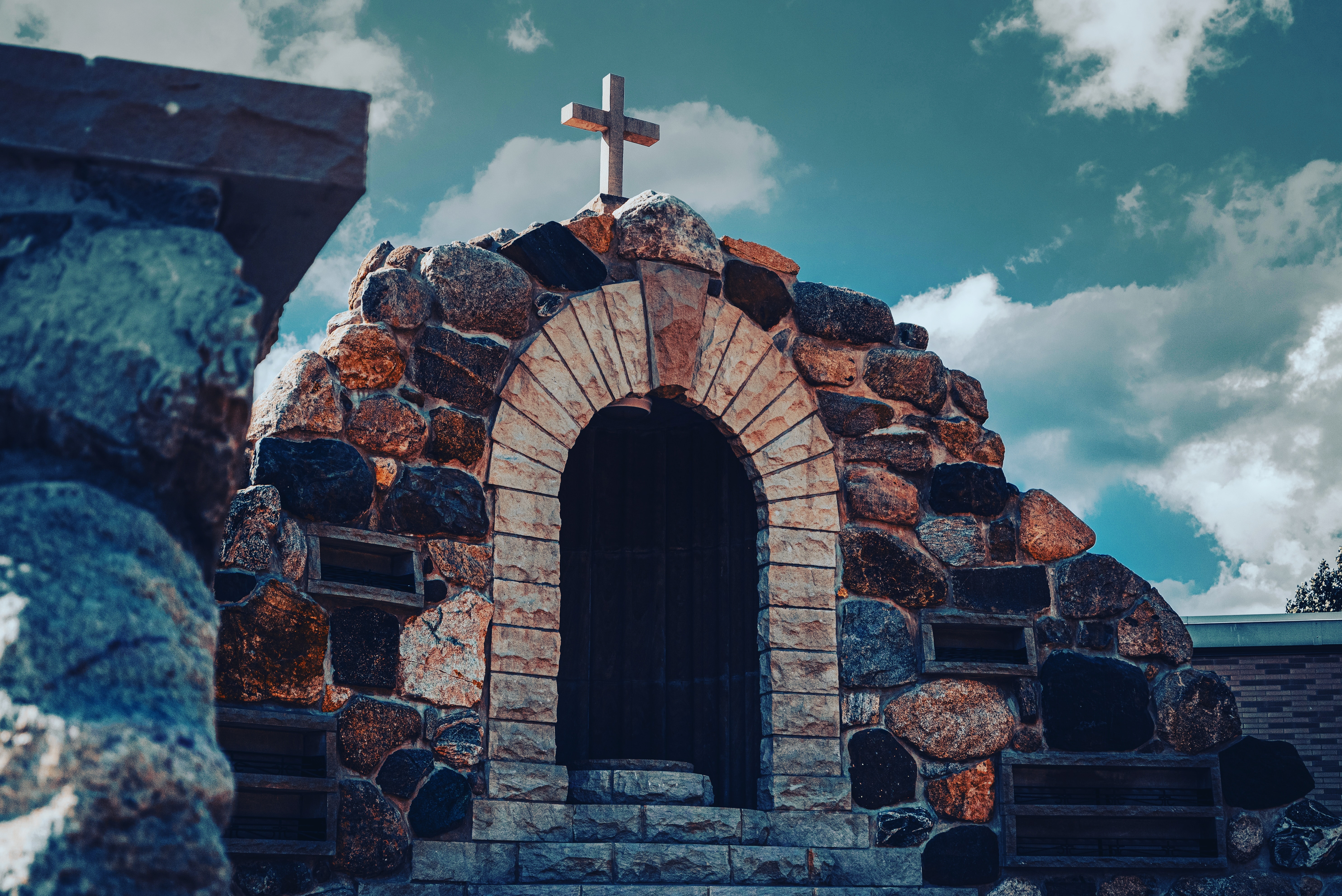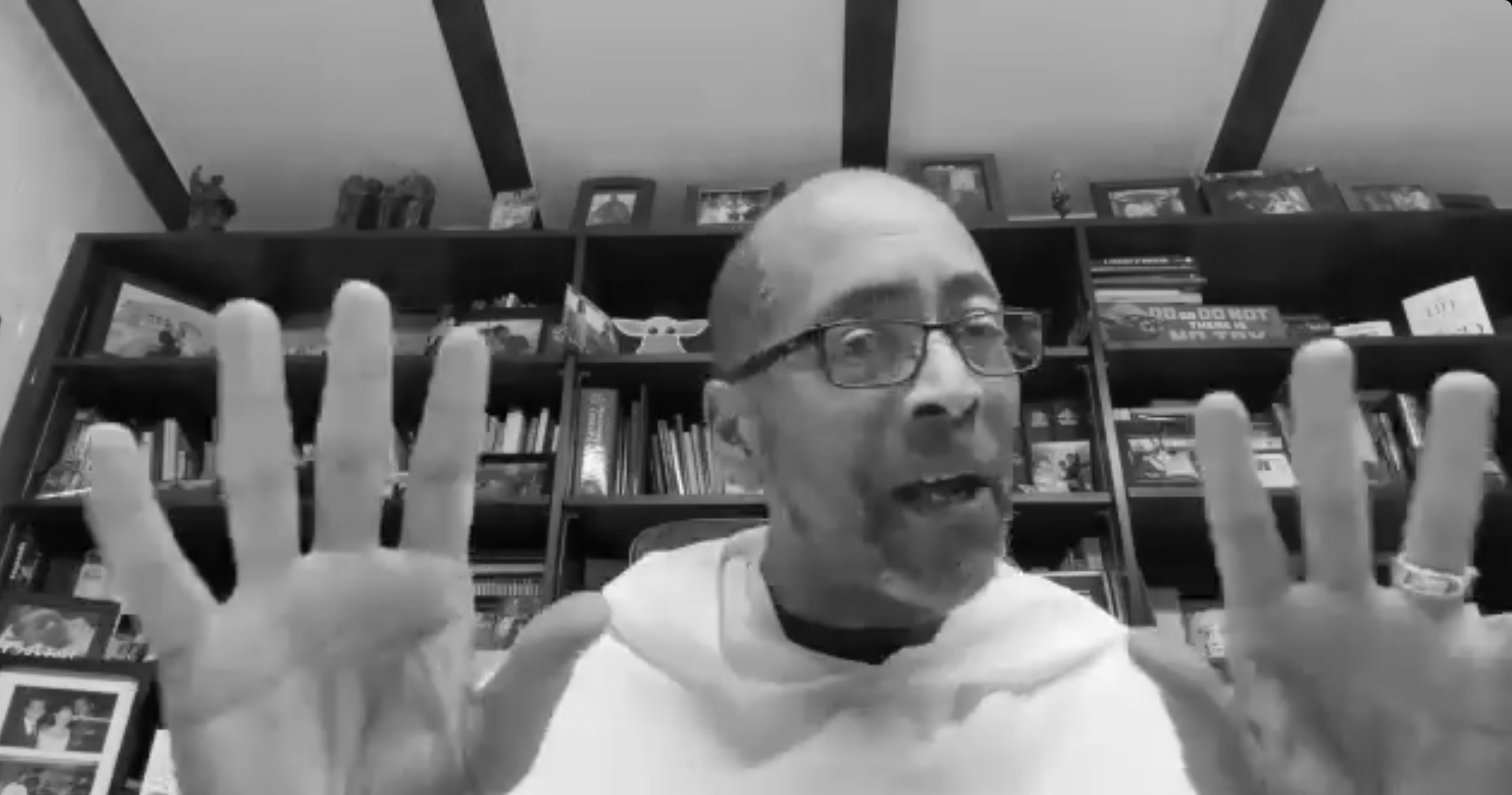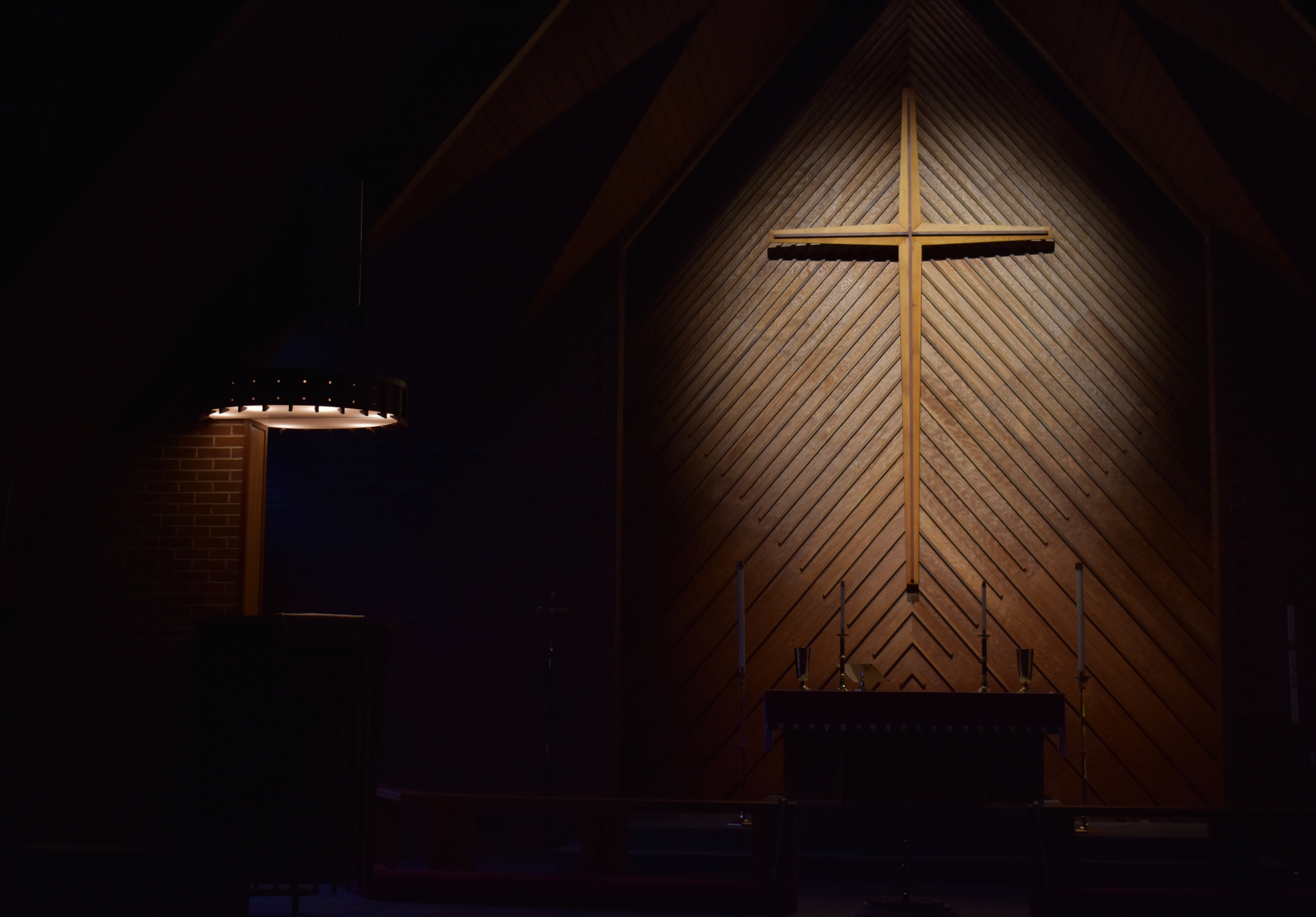"I think a big part of teaching is developing those relationships not only with students but with your colleagues and fellow staff members, is very important"
Bro. Kyle Mena, F.S.C speaks about joining the De La Salle Brothers, his work as a high school teacher, and the journey of living out his vocation.
Brother Kyle Mena, F.S.C. shares his story of living as a religious Brother and being a teacher. The following are edited excerpts and an outline of the conversation from this podcast interview.
[00:00:14] Brother Kyle, you are a religious Brother who teaches High School religion and science. It seems you connected your religious calling with your love for teaching. Can you talk about your discernment journey of choosing not to be just a teacher or just a religious person but combining both?
Yeah, so my first year living in community was in the Bronx in New York City as a resident aspirant. There I worked as a Community Service Coordinator while also living and praying within the community as well. So that experience served as a bridge between sort of this faith and action that would eventually lead me to formally apply to the De La Salle Christian Brotherhood.
It was a very humbling experience to be invited to take the next step and enter formation as a postulant and our postulancy was at that time in Philadelphia where I lived in community and taught for two years. Following that time as a postulate I went on to continue discernment through the year-long, what’s called the Regional Novitiate in Chicago, Illinois with three other young gentlemen as well from all across the United States, so it was a great time. I had a director and a sub-director, both wonderful people, that led us spiritually.
That experience called the Novitiate Experience is one that all Brothers have experienced and serves as a time of formation and preparation sort of for the Brothers in their vocation. There’s a great emphasis there in what’s called the Lasallian charism and on spiritual life in general as a component of that experience that Brothers will hopefully take with them into their ministries.
So that year usually concludes with all of the novices making their First Vows, formally called Temporary Professional Vows, from which they usually go out into an experience of which, where I’m at currently, most recently having completed a year of teaching science and religion in Pittsburgh, Pennsylvania. I’m definitely glad to continue working on sort of that bridging of the craft between teaching pedagogy and spirituality.
[00:02:19] Was there a point where you were deciding just to be a teacher or just be a religious person? How was that interplay and you deciding that you could do both?
I think with teachers there’s always going to be moments within your teaching career that challenge you. Within religious life there’s always going to be moments that challenge you. I think what the Brothers helped me do is to be able to bridge those two so that on those difficult days when I’m experiencing some hardship within the classroom or experiencing some sort of negative emotions and not really feeling connected to teaching or to the charism. It’s definitely on those days within community that they help to support that. So that’s why I appreciate community very much.
[00:03:10] Can you talk about what that community looks like on a day-to-day basis for you?
Throughout a number of my conversations within discernment, with different spiritual directors, with Brothers even before I joined, as well colleagues, friends, it was very unclear about what the religious brotherhood was and what community entailed. But eventually what helped me to connect that was, throughout my discernment, understanding this notion of what’s called charism. And we called charism sort of this gift from the Holy Spirit to the Church through a community and its members for the good of everybody.
So, for example, each community’s charism is a very unique gift and even those with same origins and roots have different unique characters. So the De La Salle Christian Brothers, our charism is a Christian education for the poor. So I appreciate the ministry experience that I’ve had so far with the Brothers that’s helped me realize that ministry and charism is not necessarily merely a way of me as a Brother being able to give back and contribute to my community so much as it involves an acceptance that there is a need to be met by sharing one’s gifts in acts of service to others.
[00:04:35] You mentioned how it helps living in community with your day-to-day struggles or things that come up. How have you grown as a person to be able to live in community? How did you grow into it or easily fit into it?
Yeah, I mean, a big emphasis within the novitiate is completing a series of sort of personality tests…two of them, very famous, the Myers-Briggs exam and also the Enneagram as well. So those two help you to really delve deeper into sort of the social dimension of community but also within the interpersonal dimension, the personal dimension of how you are able to fit into not only that community but into society. By understanding yourself, by understanding your upbringing, understanding who you are as a person definitely helps to, help you connect into community.
As a person, you mentioned growing as a person, I think within college my faith definitely began to flourish. But then after meeting the De La Salle Christian Brothers new opportunities opened for me to continue to meet other young men who are interested in religious life, extending sort of this invitation to live in community helped me to say, “all right, now I get to also work side by side with the Brothers” but also get to try out what it’s like to work within one of their ministry, within one of our schools. At that time it was a high school I first started in. And through sort of those experiences it helped me also to grow not only as a person but also professionally, as well within the Brothers.
[00:06:36] What family and/or church experiences growing up helped create that foundation to where you were able to hear this call into your religious vocation?
The Brothers ministry is one that seeks to provide what’s called a Christian education for the poor. So it’s become an extension, right, of my own family, my original community, so to say. So my family definitely has always encouraged me to be authentic, genuine, and faithful to God as a disciple of Christ but really thinking about how can I continue to share my gifts and go out into the world and serve is to always remember, you know, my origin, my roots.
So I, definitely, my family definitely serves as a constant reminder to continually embrace those values, you know, respect and service to one another as Christ would have had us do as brothers and sisters. So that’s where it comes from.
[00:07:38] Are there any experiences growing up that made you interested in being a teacher? Or is that something that came gradually or was it like a specific moment that started that thought?
I think mostly just reviewing my own life as a student and reviewing all the teachers that I had who really had a strong impact on me helps me to frame how I want to continue to teach and how I want to continue to grow. It’s not a perfect science, teaching is not a perfect science. Anybody will tell you that. It’s definitely one that’s going to challenge you and test you throughout time but looking at my teachers, looking at my family members, looking at friends, all those life experiences and being able to not only accept them but also utilize them as the motivation to continue forward, to pass on the good that I’ve experienced. To learn from that which was not always so good but also make sure that I’m able to discern at different points that say, “all right, this is a new experience I haven’t experienced before as a teacher, clearly, but I can still allow God to work through me in this opportunity.” I just have to sort of get out the way and allow God to work.
[00:09:03] Do you see any parallels with the students you work with or you teach and seeing yourself in them? How has that helped you in speaking to them?
…It’s this notion of not only necessarily being able to see yourself in them but being able to plant the seeds, you know, for the future. And that’s, those are the moments that I reflect on in my own life that I say, “wow.” Like those few moments that a teacher said something or that teacher did something for me that stuck with me. Those are the moments that I always try to work towards and probably 95% of the time I don’t even know that I’m planting those things. We don’t even know that we’re planting those seeds in the future.
So really what I try to convey to my students at any time especially as they continue to discern their own lives, they send their own vocations, it’s just being willing, open and willing to grow, you know, to learn. Obviously as an educator we want students to learn but also be willing to take those risks in themselves and others. Take those risks in God and always be themselves. Be authentic…
[00:10:48] I read that it was in college you were introduced to the De La Salle Christian Brothers. Looking back at that encounter, what was about the interaction from that Brother that opened up your eyes to this vocation?
Yeah, I mean, I mentioned a little bit before with just the notion that he was able to open up new opportunities for me, to meet all the young men who were also interested in religious life. And also extending that opportunity and invitation to live in community to someone that he had just met was very flattering to me, very humbling. But also an opportunity to say, “all right.” I didn’t necessarily know what the next step was going to be after college. So for somebody to open up a door and say this could be potentially what leads you to the next step in your life I said, “all right, I’ll try it out.” So I’m glad I did try it out.
[00:11:42] Do you feel yourself using the same approach in speaking to the students you work with now?
I think it’s very simple and again I sound like I’m beating a dead horse here but it’s this notion that kids want to see that you are real, that you’re authentic. So within the classroom obviously you want to provide students with a quality education, professional education. So learning how to bridge that gap between professionalism but then also allowing my heart, my hobbies, my talents, things that I like to do that I’m good at to translate into that work that I’m doing with the students has been the biggest challenge. You know, being able to bridge that gap between professionalism and personal talents and hobbies. I think as time goes on I find it a little bit easier. Especially as I get more experience with the subject matter whether it’s biology, whether it’s religion. Just being able to be more comfortable in my own skin when I’m with the students…
[00:14:13] It’s probably a year that you’ve been at Central Catholic High School so I’m assuming you’re new to everyone, including the students. How long do you think it took for you to establish relationships with your students?
It’s different for everybody. I think as soon as I get into a new school it’s about staying focused on sort of what I have to do in the classroom first and then also from that stemming those relationships that I’m able to develop with my colleagues, with co-workers at the school. That’s huge, you know. I think a big part of teaching is developing those relationships not only with students but with your colleagues and fellow staff members, is very important. So I think the help that I’ve received and the welcome that I’ve received at Central Catholic has been great, has been wonderful to be able to come into a community within a community at Central Catholic High School…
[00:17:35] The last questions I ask all my guests at the end of the interviews are what is one scripture verse or part of the Bible that really resonates with you and why?
For this particular sort of podcast I was thinking about the letter of St. Paul to the Ephesians in chapter 4 as he mentions to some, right, as apostles, some as prophets, some as evangelists and he goes on to mention all these various opportunities and experiences that people go on to have and people that, people we become in society. Some as pastors, some as teachers…So this notion of equipping saints, of equipping people here on earth to continue to work within our ministries, to build up the body of Christ until we sort of attain that, that notion of unity within the faith. The notion of knowledge of the Son of God and measuring our success not based on all these accomplishments but that to which we are unified to God and through the fullness of Christ. Sort of paraphrasing some of it but that’s Ephesians chapter 4, verses 11 through 13.
[00:18:54] My second question is what is one word or a couple of words that you would like God to use in describing you?
I think I’ve said it a lot: authentic. There’s one. And then Christ-centered, hopefully, you know.
[00:19:09] The last question, is there anything we can help promote or we like others to know or support?
…again this attitude of gratitude. This notion that grateful to the Brothers, my family, all of my friends, folks that have supported me throughout my faith journey so far. And if I’m gonna pass on anything as a teacher, hopefully would pass on as much information and wisdom to their students or to anybody who’s discerning religious life, just to continue to lead others by being yourself. You know, by allowing God in Christ to work through you to lead other young men and women to consider commitment to religious life.





